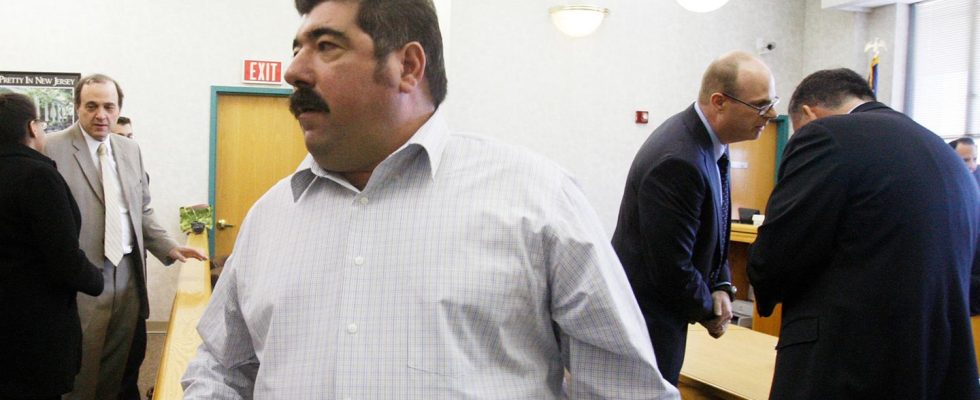$17.5 million
Construction workers concealed huge lottery winnings from the lottery syndicate – and were sentenced to pay back by the court
Americo Lopes at his trial
© Frances Micklow / Picture Alliance
Americo Lopes has to repay around four million US dollars each to his five ex-colleagues. He had previously just raked in the overall win on his own.
Money does strange things to people, and they don’t always look their best when wealth suddenly beckons. This was demonstrated in the case of a 62-year-old from New Jersey, who should have been perfectly happy, but instead had to waste time and money on a court case – and has been left with a ruined reputation ever since.
The construction worker, named Americo Lopes, worked for many years with a team of colleagues he was close friends with off the job. A colleague helped him privately with the renovation of his house, and he himself was invited to the baptism of the daughter of another employee. The friends, who worked hard physically every day, decided in 2007 to set up a syndicate. The prospect of a comfortable retirement without the hassles and worries must have pleased each of them. And so everyone involved contributed two dollars a week for a ticket.
Colleagues played the lottery together
Since the friends trusted each other, they did not put anything in writing. And apparently they didn’t question when Americo Lopes announced after a visit to the lottery kiosk in 2010 that they had once again been unlucky. What the men didn’t know: Lopes had lied, in fact the syndicate had won $17.5 million (approx. 15.8 million euros) after all taxes were deducted. However, the previously always collegial Lopes had no plans to share the money. He simply didn’t mention the stroke of luck.
The day after winning the lottery, he wrote to his boss that he had to retire early because of the consequences of a foot operation and could no longer come to work. To keep up appearances, he even applied for unemployment benefits. On the other hand, he now paid off his house in one fell swoop, treated himself to a brand new Chevrolet, a trip to Portugal, and generously distributed money to various family members. But still no one suspected that he had won the lottery.
Mann concealed the lottery win from colleagues
But the wealth went to his head more and more. Eventually, Lopes decided to sell his humble home in New Jersey and buy a dream mansion on a huge lot instead. The price: 1.5 million US dollars. It was also around this time that he happened to run into an old colleague from work, and he couldn’t help but tell him he was extremely lucky and won the lottery, a week after he should have retired.
Ranking billionaires
Elon Musk loses first place: These are the richest people in the world
Had the 62-year-old lied a little better, he might even have gotten away with it. But a big win, just one week, after he suddenly disappeared from the construction company because of a supposedly broken foot? That sounded somehow too suspicious for the former friend and colleague. The man did some research and found out: Americo Lopes had indeed pocketed his winnings, before he had left the company. Angry, he informed the other colleagues from the syndicate.
The syndicate found him out
The five affected construction workers did not hesitate and quickly realized that there was only one way for them to get the money they were owed: they sued their former friend and colleague. That turned out to be difficult because there were no written notes, everything was based on trust. But everyone involved was able to testify credibly as to how the syndicate had started, how colleagues had organized weekly participation and how long the round had lasted with Americo Lopes as a member. In addition, another colleague who had not played himself was able to confirm that he knew about it.
And so the process did not end well for Lopes, who stubbornly claimed to the last that his lot was a private lot and not the one he had bought together with his colleagues. However, the judges did not consider this to be plausible. They condemned the 62-year-old that he had to pay his ex-colleagues around four million US dollars each. So there was almost nothing left for Lopes himself: he had already blown five million dollars by the time of the trial.
Sources: “Express”, “Lotto Analyst”


